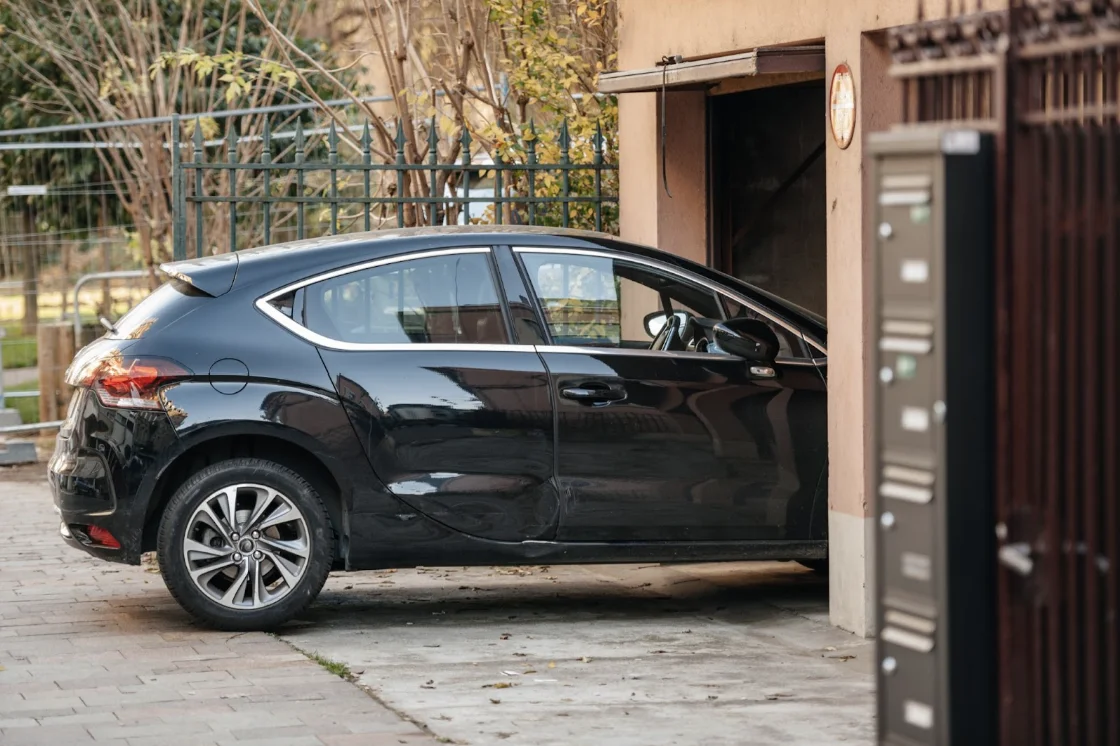Many people believe that a car in storage doesn’t need insurance, but this is a risky assumption. Unexpected damage to stored vehicles can cause significant expenses. This guide explains why it’s crucial to keep some insurance on your stored car to protect it from incidents that don’t involve driving.
The Necessity of Insurance for a Car in Storage
Legally, you’re not required to insure a car that’s not in use and stored away. Yet, this exemption doesn’t protect you from the many risks that come with storage.
Theft, vandalism, and natural disasters are just some dangers your car could face. Without proper insurance, you would have to cover all repair or replacement costs yourself, which could be financially overwhelming.
Real-Life Scenarios Where Insurance Is Essential
-
Weather-related damage
This includes harm from windstorms, hail, hurricanes, and fires that could cause significant damage to the surrounding storage facility as well as the cars inside the storage facility.
-
Theft
Coverage if the car is stolen while in storage.
-
Vandalism
Protection against intentional damage done to the car.
For example, if a severe weather event causes a tree to fall and damage your stored vehicle, comprehensive coverage would cover the repair costs. This type of insurance is essential for anyone looking to protect their vehicle from the types of risks it faces even when not in use on the roads.
Decision Factors for Insuring a Stored Car
Car owners might store their vehicles for various reasons, like repairs, a suspended license, or less need to drive. It’s crucial to know your local DMV or BMV’s rules for stored cars regarding insurance and registration.
Also, think about the future cost of insurance if you cancel now. Ending your policy could make your rates go up later. If you plan to drive your car again soon, it might be cheaper to keep your insurance or consider pay-per-use insurance.
How to Cancel Insurance for a Car in Storage
For those who decide to forego insurance during prolonged storage periods, the following steps outline the process to legally and effectively cancel the vehicle’s insurance coverage:
1. Cancel Registration
Starting the process to cancel your car insurance usually means dealing with the vehicle’s registration first. Many states ask that you either cancel or suspend the registration for a stored car, often requiring you to complete a non-use affidavit and return the license plates. This is crucial for preventing any insurance coverage gaps that might later affect your insurance rates.
2. Cancel Coverage
Once the registration is sorted, the following move involves reaching out to your insurance company to explore your options. Depending on the insurer, you might have the opportunity to temporarily suspend your policy, or you may need to cancel it altogether.”
3 . Re-register and Re-insure Before Driving Again
Before taking the car out of storage and hitting the road, it’s necessary to get the registration and insurance back in order. Usually, you’ll need to reactivate your insurance first, as proof of insurance is often required for the registration process. It’s important to check with your local DMV or BMV to make sure you meet all requirements for reinstating your car’s registration and insurance.
Conclusion
Keeping insurance on a car in storage might feel like an unnecessary expense, given the car isn’t being driven. Yet, grasping the risks and financial stakes involved is vital. Holding onto comprehensive insurance allows car owners to shield their vehicles from many risks not related to driving, providing peace of mind while the car is stored. Weighing the savings from dropping insurance against the protection it provides is crucial for making a well-informed choice that suits the owner’s situation and future intentions.
FAQs
If my car is in storage and someone else causes damage to it (e.g., a garage collapse), whose insurance pays?
If another party is at fault for the damage (like in the case of a garage collapse), their property or liability insurance should cover the damages to your car. However, having comprehensive coverage on your stored car ensures you’re protected even when liability is unclear or the responsible party is uninsured.
Will storing my car reduce my insurance rates?
Yes, in many cases, insurers will offer a reduced rate for cars that are in storage and not being driven, as the risk of accidents is lower. You may need to provide proof that the car is stored and not in use. Discuss this with your insurer to see what discounts or rate adjustments are available.
Can I insure a car in storage with a different company from my current insurer?
Yes, you can choose to insure your stored car with any company that offers the coverage you need. However, bundling policies with one insurer often leads to discounts, so it might be beneficial to discuss storage options with your current provider first.
What documentation will I need to provide to prove my car is in storage?
Insurance companies may have different requirements for proving a car is in storage. Commonly requested documents include proof of a secured storage location (such as a lease agreement for a storage facility) or photos of the vehicle stored in a garage. Your insurer will inform you of the specific documentation needed.
Get the right coverage for your car with tutenagency
New tutenagency customers?
Quote auto insurance online or call (334) 502-5111 to insure your vehicle.
Legal Disclaimer: ADVERTISING MATERIAL ONLY. Do not rely on this site or this article for legal or financial advice. The information provided on 210agency.com is strictly for educational purposes and to provide you with general educational information. Since state laws and financial regulations are subject to change, please schedule an appointment with an attorney or qualified financial advisor in your area to further discuss your personal situation. This public information is neither intended to, nor will it, create an attorney-client or financial representative relationship.

